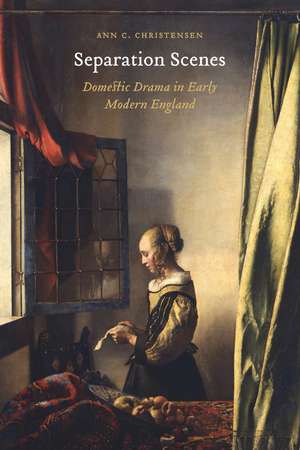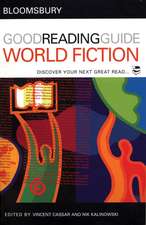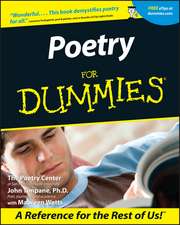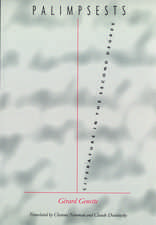Separation Scenes: Domestic Drama in Early Modern England: Early Modern Cultural Studies
Autor Ann C. Christensenen Limba Engleză Hardback – 31 ian 2017
This analysis of five exemplary domestic plays—the anonymous Arden of Faversham and A Warning for Fair Women (1590s), Thomas Heywood’s A Woman Killed with Kindness (1607), Thomas Middleton’s Women Beware Women (ca. 1613), and Walter Mountfort’s The Launching of the Mary, or The Seaman’s Honest Wife (1632)—offers a new approach to the emerging ideology of the private and public, or what Ann C. Christensen terms “the tragedy of the separate spheres.” Feminist scholarship has identified the fruitful gaps between theories and practices of household government in early modern Europe, while work on the global Renaissance attends to commercial expansion, cross-cultural encounters, and colonial settlements. Separation Scenes brings these critical concerns together to expose the intimate and disruptive relationships between the domestic culture and business culture of early modern England.
Separation Scenes argues that domestic plays make the absence of husbands for business the subject of tragedy by focusing not on where men traveled but on whom and what they left behind. Elements that critics have rightly associated with domestic tragedy—adultery, sensational murders, and the lavishly articulated operations of domestic life—define this world, which, Christensen argues, was equally shaped by the absence of husbands. Her interpretations of these domestic plays invite us to historicize and further complicate the seemingly universal binary between a feminine “private sphere” and a masculine “public sphere.”
Separation Scenes demonstrates how domestic drama played an active, dynamic, and critical role in deliberating the costs of commercial travel as it disrupted domestic conduct and prompted realignments within the home.
Separation Scenes argues that domestic plays make the absence of husbands for business the subject of tragedy by focusing not on where men traveled but on whom and what they left behind. Elements that critics have rightly associated with domestic tragedy—adultery, sensational murders, and the lavishly articulated operations of domestic life—define this world, which, Christensen argues, was equally shaped by the absence of husbands. Her interpretations of these domestic plays invite us to historicize and further complicate the seemingly universal binary between a feminine “private sphere” and a masculine “public sphere.”
Separation Scenes demonstrates how domestic drama played an active, dynamic, and critical role in deliberating the costs of commercial travel as it disrupted domestic conduct and prompted realignments within the home.
Preț: 430.05 lei
Nou
Puncte Express: 645
Preț estimativ în valută:
82.29€ • 86.15$ • 68.09£
82.29€ • 86.15$ • 68.09£
Carte tipărită la comandă
Livrare economică 07-21 aprilie
Preluare comenzi: 021 569.72.76
Specificații
ISBN-13: 9780803290655
ISBN-10: 0803290659
Pagini: 318
Ilustrații: 2 figures, index
Dimensiuni: 152 x 229 x 29 mm
Greutate: 0.62 kg
Editura: Nebraska
Colecția University of Nebraska Press
Seria Early Modern Cultural Studies
Locul publicării:United States
ISBN-10: 0803290659
Pagini: 318
Ilustrații: 2 figures, index
Dimensiuni: 152 x 229 x 29 mm
Greutate: 0.62 kg
Editura: Nebraska
Colecția University of Nebraska Press
Seria Early Modern Cultural Studies
Locul publicării:United States
Notă biografică
Ann C. Christensen is an associate professor of English at the University of Houston.
Cuprins
List of Illustrations
Acknowledgments
Introduction: Absent Husbands and Unpartnered Wives in Early Modern England
1. Housekeeping and Forlorn Travel in Arden of Faversham
2. The Doorstep and the Exchange in A Warning for Fair Women
3. One Man’s Calling in A Woman Killed with Kindness
4. Women, Work, and Windows in Women Beware Women
5. The East India Company and the Domestic Economy in The Launching of the Mary, or The Seaman’s Honest Wife
Epilogue: John and Anne Donne and the Culture of Business
Notes
Bibliography
Index
Acknowledgments
Introduction: Absent Husbands and Unpartnered Wives in Early Modern England
1. Housekeeping and Forlorn Travel in Arden of Faversham
2. The Doorstep and the Exchange in A Warning for Fair Women
3. One Man’s Calling in A Woman Killed with Kindness
4. Women, Work, and Windows in Women Beware Women
5. The East India Company and the Domestic Economy in The Launching of the Mary, or The Seaman’s Honest Wife
Epilogue: John and Anne Donne and the Culture of Business
Notes
Bibliography
Index
Recenzii
"Christensen's study is a welcome addition to the excellent studies of early modern domestic drama that have appeared in recent years . . . especially in its fresh readings of, and original insights into, plays that are now receiving much deserved, though delayed, attention."—Iman Sheeha, English
"Separation Scenes is strong, and necessary, in the way that it "notices" and analyzes aspects of these plays that tend to be ignored in our focus on their erring female protagonists, but which are crucial to understanding those same characters."—Margaret Mikesell, Renaissance Quarterly
"By layering a historical account of gender, sexuality, and marriage in the period with analyses of domestic labor, domestic space, and the geography of urban commerce, Christensen is able to provide a powerful model of a feminist reading practice."—Henry S. Turner, SEL Studies in English Literature 1500-1900
"Separation Scenes is useful for its attention to domestic spaces, marital relations, and economic conditions in the early modern period."—Joseph F. Stephenson, Sixteenth Century Journal
"Given the significance of sex and money to the exploration of commercial travel and separation, Christensen's observations will likely also prove of interest to those working on city comedies, which share those themes, as well as to those interested in poetry, marriage treatises, ballads, and other writings from this period that fall outside the domestic drama genealogy, but share many of its concerns. So too, the tension between absent husbands and stay-at-home wives reverberates through a myriad of more recent writing, suggesting that Christensen's informative and vibrant study of the impact of globalization on domestic economies and structures will have broad and ongoing relevance."—Aoise Stratford, Journal of Dramatic Theory and Criticism
"Ann C. Christensen’s Separation Scenes: Domestic Drama in Early Modern England adds to excellent recent studies of domestic drama."—Jennifer Cryar, The Year’s Work in English Studies
“With one brilliant insight, Separation Scenes demonstrates the entanglement of the global and the domestic in the Elizabethan and Jacobean years. Ann Christensen’s readings of key domestic plays are both entirely fresh and historically true.”—Lena Cowen Orlin, professor of English at Georgetown University, executive director of the Shakespeare Association of America, and author of Locating Privacy in Tudor London
“Thorough, original, and revelatory, Separation Scenes brings to life the domestic drama of early modern England and elegantly illuminates a history of domesticity that includes the labors of women and men within and, crucially, far beyond the thresholds of the home.”—Ariane M. Balizet, associate professor of English at Texas Christian University and author of Blood and Home in Early Modern Drama: Domestic Identity on the Renaissance Stage
“Ann C. Christensen provides the best and most original study of early modern domestic tragedy to date. . . . Christensen allows us to see with greater clarity how the emergence of the ‘domestic’ is closely entangled with the rise of the ‘global.’ This is an important intervention.”—Jonathan Gil Harris, dean of academic affairs and professor of English at Ashoka University and author of Shakespeare and Literary Theory


























